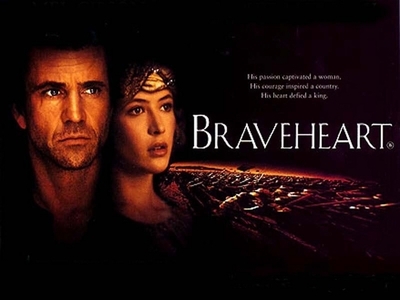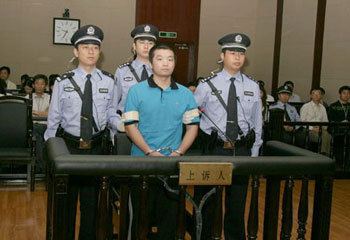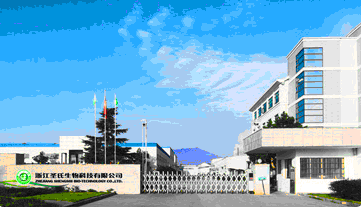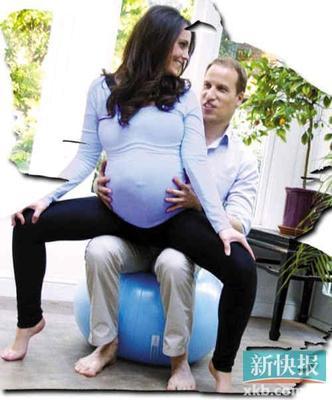MIKE WALLACE, CBS CORRESPONDENT (voice-over): When Jiang Zemin, thepresident of China, who arrives in the United States tomorrow, letit be known that he would like to kick off his trip with aninterview on 60 MINUTES, we said there's nothing we'd like better-- if he was willing to level with us. And he was.
WALLACE (voice-over): In the 50 yearssince the Communist Party took power there, China has had justthree paramount leaders: Mao Tse-Tung, Deng Xiaoping, and now JiangZemin, who currently rules over almost 1.3 billion people -- oneout of every five people on Earth. He's been in charge for 11years, since Deng chose him to restore stability after thebrutality at Tiananmen Square. But still, Americans know remarkablylittle about this powerful man who arrives in New York Citytomorrow to visit the U.N. and to meet with American businessleaders. The president believes China has been misunderstood herein America, and he wants Americans to get a more favorable -- andhe says more realistic -- impression of his country.
ZEMIN: I hope to convey through yourprogram my best wishes to American people.
WALLACE (voice-over): He's been called the silk-wrapped needle, andin this interview you'll see why. For several years, we've beenasking to sit down with him. Finally, the president invited us toChina and told us he was willing to answer any question.
(on camera): In arecent headline in one of your government newspapers, "ChinaDaily," the paper called the U.S. "a threat to world peace." Do youfeel that way, that the United States is a threat to worldpeace?
ZEMIN (through translator): Candidly speaking, maybe it is becauseof the economic power and leading edge in science and technologythat the United States enjoys, that more often than not it tends tooverestimate itself and its position in the world. But today I wantto convey a nice message to the American people, so I don't want touse too many tough words in our talk.
WALLACE: Al Gore, George W. Bush -- one of them is going to bepresident of the United States while you are president of China. Ifthey are watching right now, what would you want to say to themabout future U.S. relations with China?
ZEMIN (through translator): I have a lot of friends among theleaders of both parties -- Republicans and Democrats.
WALLACE: So you give money to both their campaigns?
ZEMIN (through translator): Are you just joking? We have never donesuch things. I have read the campaign platforms of both parties andI believe whoever becomes president will try to improve thefriendly relations between Cina and the United States, for this isin the strategic interest of the whole world. Someone asked me notto pay attention to unfriendly remarks candidates might make aboutChina during the campaign because once elected, they will befriendly. I only hope that's true.
WALLACE: The president had agreed to give short answers so that wecould cover more ground. And when I reminded him about it, he wasready for me.
ZEMIN (through translator): But I think my answer is roughly thesame length as your question.
WALLACE: I know it. That's absolutely true.
ZEMIN (through translator): If you make concise and briefquestions, I'll give you brief answers.
WALLACE (voice-over): This was the first time Western televisioncameras had been allowed inside the president's summer compound onthe beach at the resort town of Bedaihuh. It has been calledChina's Camp David. This is where the country's leaders meet inprivate every August to develop their plans for the coming year.The president agreed to speak candidly with us, so we asked him totell us candidly... (on camera): ... how would you characterize thestate of relations between China and the United States today, Mr.President?
ZEMIN (through translator): On the whole, relations between Chinaand the United States are good. However, I would like to use wordspeople use to describe nature to describe the state of China-U.S.relations. Our relations have experienced wind, rain, and sometimesclouds or even dark clouds. However, sometimes it clears up. We allsincerely hope to build a constructive partnership between Chinaand the United States.
WALLACE: That's spoken like a real politician. There's no candor init.
ZEMIN (through translator): I don't think "politician" is a verynice word.
WALLACE: It's a diplomatic word in this case.
(voice-over): JiangZemin is a gregarious fellow who loves center stage, but he has notgiven an extended interview to an American television reporter for10 years, partly, he says, because Americans refuse to believe thatthe vast majority of Chinese are actually satisfied with one-partyrule. One of our most spirited exchanges was over his objection toour use of the word "dictator."
(on camera): You are the last majorcommunist dictatorship in the world.
ZEMIN: You mean I'm dictatorship?
WALLACE: Well, of course. A developmental dictatorship is what webelieve it is. Am I wrong?
ZEMIN: Of course. This is big mistake.
WALLACE: you are, it seems to me, a dictator, anauthoritarian.
ZEMIN: No, but I -- very frank speaking, I don't agree with yourpoint, I am dictator.
WALLACE: I know you don't. I know that you don't. But there's anold American phrase about if it walks like a duck and quacks like aduck and so forth, it's a duck.
ZEMIN: What means dictatorship?
WALLACE: A dictator is somebody who forcibly, whether it's freepress or free religion or free private enterprise -- now you'rebeginning to come a little closer to that -- you, father, knowsbest. And if you get in the way of father, father will take care ofyou.
ZEMIN (through translator): Your way of describing what things arelike in China is as absurd as what "The Arabian Nights" may soundlike. The National People's Congress selects the Central Committeeof the Communist Party, and the Central Committee has a Politburo.And the Politburo has a standing committee of which I'm a member.And no decision is made unless all members agree.
WALLACE: But when we talk about dictatorship, I'm -- I'm wagging myfinger at the president of China. You know what? When I see thepicture of that one young man in front of the tank in TiananmenSquare, that to me means Chinese dictatorship. That's a wonderfulsymbol that hits -- hits me in my heart about dictatorship inChina.
ZEMIN: I don't need translation. I know what you say.
WALLACE: I know.
ZEMIN (through translator): I'm very willing to answer thesequestions.
WALLACE (voice-over): So we reminded him that he himself had been astudent demonstrator more than 50 years ago. (on camera): You werea student protester in Shanghai.
ZEMIN: That's right.
WALLACE: At the time of the nationalists, we want freedom, we wantdemocracy. That was you.
ZEMIN: That's right.
WALLACE: That's what those people in Tiananmen Square were saying:We want freedom. We want democracy.
ZEMIN (through translator): In the 1989 disturbance, we trulyunderstood the passion of students who were calling for greaterdemocracy and freedom. In fact, we have always been working toimprove our system of democracy, but we could not possibly allowpeople with ulterior motives to use the students to overthrow thegovernment under the pretext of democracy and freedom.
WALLACE: Did a part of you admire his courage?
ZEMIN (through translator): He was never arrested. I don't knowwhere he is now. Looking at the picture, I know he definitely hadhis own ideas.
WALLACE: You haven't answered the question, Mr. President. Did apart of Jiang Zemin admire his courage?
ZEMIN (through translator): I know what you are driving at, butwhat I want to emphasize is that we fully respect every citizen'sright to freely express his wishes and desires. But I do not favorany flagrant opposition to government actions during an emergency.The tank stopped and did not run the young man down.
WALLACE: I'm not talking about the tank. I'm talking about thatman's heart, that man's courage, that man, that lonely man standingagainst that. One month after Tiananmen, you wrote a speech. And init, you said, "Corruption is growing in the soil if all our partyand our government organs use their power to seek materialbenefits. Isn't this just like fleecing the people in broaddaylight?" Those students in Tiananmen had also been protestingagainst the corruption that you talked about. So apparently theydid have some effect on you and on your party.
ZEMIN (through translator): I hate corruption. You are right thatduring the 1989 disturbance, students were chanting slogans againstcorruption. So on this specific point, the party shares the sameposition as the students.
WALLACE (voice-over): As an aside, and to underline his credentialsas a student demonstrator in times past, the president himself sanga protest song he'd used back in 1943 against Japanese troops whowere occupying parts of China. The title: "Arise Fellow Students toDefend the Motherland."
ZEMIN: (SINGING IN CHINESE)
WALLACE: The president's aides suggested it would be unfair to showpictures of the violence at Tiananmen Square because, they say,Jiang Zemin had nothing to do with it. But they were glad to giveus pictures of their embassy in Belgrade, which had been demolishedby American bombers during NATO's air war last year. (on camera):Mr. President, do you still believe that the United States bombedyour embassy in Belgrade on purpose?
ZEMIN (through translator): Let me put it the other way around. TheUnited States has state-of-the-art technology, so all theexplanations that they have given us for what they call a mistakenbombing are absolutely unconvincing.
WALLACE: What would the United States get out of bombing yourembassy in Belgrade?
ZEMIN: This for me is also a question. (through translator): Theidentification marks of the Chinese embassy in Belgrade were tooclear for people to miss. So why has there been such an incident?It is still a question. But we have decided to look forward, toimprove China-U.S. relations.
WALLACE: I understand that. And that's behind us. But you know it'spossiblefor the CIA and the Pentagon to make mistakes -- stupidmistakes. The American people -- the American people have no doubt,no doubt in their mind, I think, that this was simply amistake.
ZEMIN (through translator): President Clinton apologized to me forthe bombing many times on the telephone. I told him, since yourepresent Americans and I Chinese, it would be impossible for us toreach total agreement on this issue.
WALLACE (voice-over): When 60 MINUTES returns, the president willgive us his views on Abraham Lincoln, American morals and accusedspy Dr. Wen Ho Lee.
WALLACE (voice-over): President Jiang Zemin says his polls tell himthe Chinese people believe that one-party rule is the best way tomaintain stability and increase prosperity. And while the presidentis 74 and scheduled to step down in less than three years, he hasindicated that he might stay on beyond that. His unfulfilled dream,of course, is to unite Taiwan with the mainland, and he told usthat he would fly to Taiwan himself for unification talks, ifTaiwan were to agree in advance that it is part of China, which sofar Taiwan has been unwilling to do. We asked the president aboutthat Taiwan-born scientist who has become a source of somecontroversy in the United States and China. (on camera): You knowthe name of Dr. Wen Ho Lee? Do you know the man?
ZEMIN: I know famous scientist.
WALLACE: Famous scientist, Chinese.
ZEMIN: Chinese? Overseas Chinese.
WALLACE: Hmm?
ZEMIN: Overseas Chinese.
WALLACE: Oh, overseas Chinese. He went to the United States in1964...
ZEMIN: That's right.
WALLACE: ... and had a wonderful career, and went to Los AlamosNational Laboratory. And suddenly they decided that he was a spy,conceivably for you. Was he?
ZEMIN (through translator): I can tell you frankly, China was notin any way involved in Wen Ho Lee's case. But we do know that he isa scientist.
WALLACE: Who came here to China and talked to yourscientists.
ZEMIN (through translator): That's nothing strange. It's just asnormal as some Chinese scientists traveling abroad. Allow me toquote a Chinese proverb which goes, "If you are out to condemnsomeone, you can always trump up a charge." We don't know whatpolitical motives are behind it. Today, the Chinese still see WenHo Lee as a renowned scientist.
WALLACE: That's all?
ZEMIN: That's all.
WALLACE: Not a spy?
ZEMIN: Of course...
WALLACE: You seem almost defensive. (voice-over): For the firsttime in this whole conversation, when I raised the name of Wen HoLee, all of a sudden I sensed... (on camera): This is a difficultsubject for you.
ZEMIN: This is not difficult to me. This is your feeling.
WALLACE: Correct.
ZEMIN (through translator): Maybe under the lights.
WALLACE: Conceivably under the lights.
ZEMIN: What do you think?
WALLACE: I'm not supposed to think.
ZEMIN: You say wen Ho Lee's a spy, Chinese spy, or not?
WALLACE: Do I think?
ZEMIN: That's right. You are to consider carefully.
WALLACE: I am considering very carefully. You've stumped me.
ZEMIN (through translator): No. First time I discover you face thedifficulty to answer this question.
WALLACE: Yes, that's true. That's true. I probably shouldn'tanswer. (voice-over): If there was ever a time to change thesubject, this was it. (on camera): You studied the speeches ofThomas Jefferson and Abraham Lincoln as a youngster when you werelearning English?
ZEMIN (through translator): When I was in middle school. And later,when I was a teacher, I used Lincoln's Gettysburg Address in mycourse. Do you want me to quote some lines from it?
WALLACE: I do indeed.
ZEMIN (through translator): I'll read to you. "Four score and sevenyears ago, our fathers brought forth on this continent a newnation, conceived in liberty and dedicated to the proposition thatall men are created equal."
WALLACE: Why did you learn that by heart?
ZEMIN (through translator): I focused on the words "all men arecreated equal."
WALLACE: Right.
ZEMIN (through translator): Because this had a great influence onstudents when I was young. And I think what Abraham Lincolndescribed still remains the goal of American leaders today.
WALLACE: That's true.
ZEMIN (through translator): Especially the last paragraph: "thegovernment of the people, by the people and for the people, neverperish from the Earth."
WALLACE: And Abraham Lincoln was elected by the people,correct?
ZEMIN: That's right. Why is it that Americans can elect theirnational leaders, but you apparently don't trust the Chinese peopleto elect your national leaders? Why?
ZEMIN (through translator): I am also an elected leader, though wehave a different electoral system. Each country should have its ownsystem because our countries have different cultures and historictraditions and different levels of education and economicdevelopment.
WALLACE (voice-over): Jiang was chosen by the top leaders of theCommunist Party. Public elections occur only in some villages andsmall towns and candidates must either be members of the CommunistParty or run as independents. (on camera): But I don't understandstill why you have a one-party state. What would happen -- whatwould happen in China if there were two or three parties? Isn't itconceivable that, as in the United States, the competition betweenthe parties to represent the majority of the people in that countrymake for a better country?
ZEMIN (through translator): Why must we have opposition parties?You are trying to apply the American values and the Americanpolitical system to the whole world. But that is not verywise.
WALLACE (voice-over): Many China scholars believe the presidenthas, in effect, made a deal with the Chinese people: to increasetheir economic and social freedom, to work and live as they please,and in return the people give up any right to challenge theauthority of the Communist Party. But the president doesn't see itthat way. He told us the people and the party are working togethertoward mutual goals.
ZEMIN (through translator): Let me be frank. China and the UnitedStates differ greatly in terms of our values. You Americans alwaysuse your values in making judgments about the political situationin other countries. We want to learn from the West about scienceand technology and how to manage the economy, but this must becombined with specific conditions here. That's how we have madegreat progress in the last 20 years.
WALLACE: Fact is, China's standard of living has been risingdramatically. And in China, like America, it's the economy thatlargely determines people's satisfaction with theirgovernment.
The president maintains that the vast majority here believe strongone-party rule is the best way to hold this huge populationtogether and to keep the economy growing. So stability is the toppriority -- sometimes at the expense of human rights.
(on camera): New subject, one you're not going to want to talkabout: human rights. You persecute something called Falun Gong.They do exercises, they believe in a certain spiritual life. Whatis it that worries you so about Falun Gong that you torture,arrest, kill, et cetera. What is it?
ZEMIN (through translator): I will tell you. Their leader, LiHongzhi, claims to be the reincarnation of the chief Buddha, andalso a reincarnated Jesus Christ. Can you believe that? He saidthat doomsday was about to come and that the Earth was going toexplode. In fact, what he says are just fallacies to deceivepeople. But as a result of his preaching, many families were brokenand many lives were lost. So after careful deliberations weconcluded that Falun Gong is an evil cult.
WALLACE: A cult?
ZEMIN: Cult. (through translator): By the way, no Falun Gongfollowers have ever been sentenced to death.
WALLACE (voice-over): But 26 of them have reportedly died in policecustody. President Jiang told us Falun Gong has driven thousands ofits members to commit suicide. But Falun Gong says that'sridiculous, that it does not encourage suicide, and that it's stillgoing strong despite the Chinese government's efforts to quash it.(on camera): Look, you have persecuted Christians. It's well known.You have persecuted Falun Gong. It is difficult to understand why abig power like China would want to persecute people because oftheir religion.
ZEMIN (through translator): One thing we have to make very clear.Just now, you mixed up two things: Christianity and Falun Gong.Under China's constitution, people have the freedom of religiousbelief. But Falun Gong is a cult. It is totally different fromChristianity.
WALLACE: But you will acknowledge then that the Christians havebeen persecuted by the Communist Party in China, yes? No?
ZEMIN (through translator): No, but like anyone else, Christiansshould not break Chinese laws.
WALLACE (voice-over): The government does recognize Christianity,Chinese-style. But foreign missionaries are banned, and evangelicalgroups are not allowed to spread their faith without governmentapproval. As for freedom of speech, criticism of the government canget you arrested, and Jiang Zemin has always favored toughgovernment controls of the press. The press, he has said, should bea mouthpiece of the party. (on camera): And there is not freedom ofthe press here. There is not. We see a connection between freedomof the people and freedom of the press. What do you fear from afree press?
ZEMIN (through translator): I think all countries and parties musthave their own publications to publicize their ideas. We do havefreedom of the press, but such freedom should be subordinate to andserve the interests of the nation. How can you allow such freedomto damage the national interests?
WALLACE: You've blocked Internet sites here in China, the BBC, "TheWashington Post." Why? Why block an Internet site? You don't trustthe people somehow to be able to pick stuff up off the Internet andlearn?
ZEMIN (through translator): We hope people will learn a lot ofuseful things from the Internet. However, sometimes there is alsounhealthy material, especially pornography on the Internet, whichdoes great harm to our youngsters.
WALLACE: Not from the BBC and not from "The Washington Post."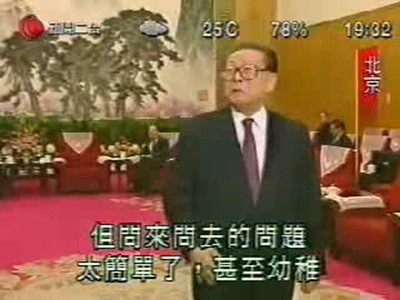
ZEMIN (through translator): They might be banned because of some oftheir political news reports. We need to be selective. We hope torestrict as much as possible information not conducive to China'sdevelopment.
WALLACE: Deng Xiaoping said, "To get rich is glorious." Is itconceivable that the more material gains that we make as humanbeings, the more we become hedonists, permissive?
ZEMIN (through translator): What Deng Xiaoping advocated does allowsome people to become rich before others, but the ultimateobjective is prosperity for all. A common problem for world leadersis to avoid material wealth on one hand but moral decline on theother.
WALLACE: Do you think that America is more decadent, for instance,than China, and that we are exporting our decadence to you?
ZEMIN (through translator): Let me put it this way, due to manydifferences between our countries in historical traditions, ways oflife, religious beliefs, et cetera, things you don't regard asdecadent in the states, we may regard as decadent in China. That'swhy we have to be very selective. It's a very complicatedproblem.
WALLACE (voice-over): Another complicated problem is trade, andPresident Jiang will meet with American business leaders this weekto urge them to increase their investments in China. CorporateAmerica has long lusted after China's billion-buyer market, but thefact is China still sells a lot more to us than we sell to them. Tochange that, the White House says that if the U.S. Senate approvespermanent normal trade relations with China, as the House alreadyhas, that would force China to reduce tariffs and trade barriers,and thus to buy more American goods. President Jiang wants normaltrade relations, too, and he wanted to end our conversation byunderscoring why he had agreed to this rarest of interviews.
ZEMIN: I'm convinced that this interview will be further promotingthe friendship and mutual understanding between our two peoples.That is all.
WALLACE: You believe that?
ZEMIN (through translator): That's right. I'm convinced that. Itrust that.
WALLACE: You admire America?
ZEMIN (through translator): That's right.
WALLACE: And you want to be friends?
ZEMIN (through translator): I want to promote mutual understandingbetween our two peoples.
 爱华网
爱华网